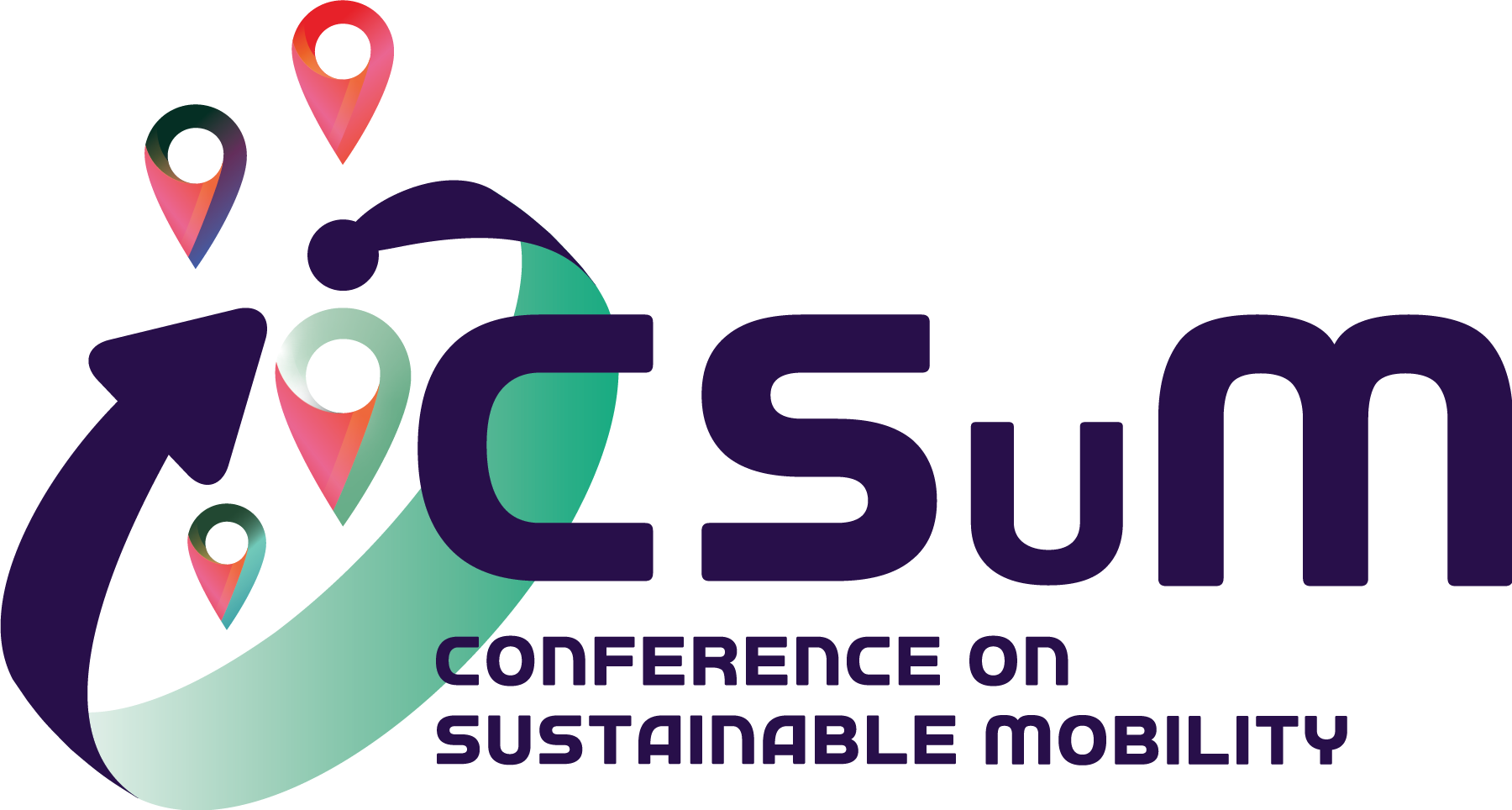Special sessions & workshops
Sustainable and Resilient Regional Ecosystems
Sustainable and Resilient Regional Ecosystems aims to provide insights in preserving and enhancing the sustainability and resilience of ecosystems at regional scales. This field focuses on maintaining the health, biodiversity, and functionality of ecosystems while ensuring their ability to withstand and recover from environmental stresses and anthropogenic impacts. We integrate ecology, environmental science, sociology, and policy to develop holistic approaches that support both environmental sustainability and human well-being, ensuring that regional ecosystems remain robust and capable of providing essential services now and for future generations.
We concentrate on:
- Biodiversity Conservation: Protecting and promoting diverse species and genetic variability to enhance ecosystem resilience and adaptability to changes.
- Ecosystem Services: Studying and preserving the benefits that ecosystems provide to humans, such as clean water, air, food, and recreational opportunities, while ensuring these services can endure over the long term.
- Climate Change Adaptation: Developing strategies to help ecosystems adapt to changing climate conditions, including rising temperatures, altered precipitation patterns, and increased frequency of extreme weather events.
- Habitat Restoration and Management: Restoring degraded habitats and managing land use to support healthy ecosystems and connectivity between habitats, enabling species movement and genetic exchange.
- Sustainable Resource Use: Promoting practices that balance human needs with ecological health, ensuring that natural resources are used in a way that does not compromise ecosystem integrity.
- Community Involvement and Policy: Engaging local communities in conservation efforts and influencing policy to support sustainable and resilient ecosystem practices.
- Monitoring and Data Analysis: Implementing long-term monitoring programs and using data analysis to track ecosystem changes, assess impacts, and inform management decisions.
Session Moderators:
- Konstantinos Kokkinos, Digital Systems Dept., University of Thessaly, Greece.
- Nicholas Samaras, Digital Systems Dept., University of Thessaly, Greece.
Topics and Presenters:
- Opportunities for development of alternative food networks in Bulgaria
Ekaterina Arabska, University of Agribusiness and Rural Development, UARD, Plovdiv, Bulgaria
- Navigating the Green Wave: Assessing the Adoption of Eco-friendly Marketing in Egypt
Amr Aly, Department of Statistics, Econometrics, Operations Research, Business Organization and Applied Economics, University of Cordoba, Spain
- Advancing Sustainability: The Role of Green Economy in Environmental Conservation and Resource Management
Delyan Plachkov, University of Agribusiness and Rural Development, UARD, Plovdiv, Bulgaria Community of Practice for Sustainable Regions and Supply Chains
- Sustainable Agriculture through Integrated Pest Management: Strategies for Effective Implementation
Teodora Ilieva, University of Agribusiness and Rural Development, UARD, Plovdiv, Bulgaria
- Enhancing Landscape Infrastructure: Mapping Windbreaks for Agricultural Resilience and Environmental Conservation
Lenka Lackóová, Faculty of Horticulture and Landscape Engineering, Slovak University of Agriculture, Nitra, Slovakia
- Cultural tourism and transport innovations – trends, opportunities and sustainability through the prism of tourist destination Plovdiv
Zlatka Grigorova, University of Agribusiness and Rural Development, UARD, Plovdiv, Bulgaria
Network resilience under disasters
This special session aims to provide understanding, designing, and improving the robustness and recovery capabilities of critical infrastructure networks when faced with environmental hazards and disasters. This field examines how natural events such as earthquakes, floods, hurricanes, wildfires, and other extreme weather conditions impact the functionality of communication, transportation, energy, and water networks. Researchers aim to develop strategies and technologies that enhance the ability of these networks to withstand, adapt to, and quickly recover from such disruptive events. We concentrate on:
- Risk Assessment and Vulnerability Analysis: Identifying potential hazards and assessing the vulnerability of network components and connections to these hazards.
- Resilience Engineering: Designing and implementing infrastructure with built-in resilience features that can absorb shocks and maintain functionality during disasters.
- Redundancy and Diversity: Ensuring multiple pathways and alternative resources within networks to prevent single points of failure and enhance recovery options.
- Real-time Monitoring and Response: Developing systems for real-time data collection, monitoring, and automated response to mitigate the impact of disasters.
- Recovery Planning and Resource Allocation: Establishing protocols for efficient resource distribution and repair processes post-disaster to expedite recovery.
- Simulation and Modeling: Using computational models to simulate disaster scenarios and predict their impact on networks, helping to formulate effective response strategies.
Session Moderator:
- Konstantinos Kokkinos, Senior Lecture and Researcher, Energy Systems Dept., University of Thessaly, Greece.
- Nicholas Samaras, Digital Systems Dept., University of Thessaly, Greece.
Topics and Presenters:
- RES-Q: A Holistic Approach to Semantic Orchestration and AI-Enhanced Mobility in Disaster Response
Omiros Iatrellis, Dept. of Digital Systems, University of Thessaly, Larissa, Greece
- FiReS: An Advanced System Utilizing Semantic Technologies and AI for First Responders in Post-Disaster Plans
Areti Bania, Dept. of Digital Systems, University of Thessaly, Larissa, Greece
- Quantitative Dynamic Flood Monitoring and Forecasting using Satellite and Aerial Images: the Use Case of Larissa, Greece.
Maria Drogkoula, Dept. of Digital Systems, University of Thessaly, Larissa, Greece
- Low Carbon Transformation and Resilience Decision Support System via DEMATEL and FCM
Konstantinos Kokkinos, Dept. of Digital Systems, University of Thessaly, Larissa, Greece
- The Smart Transport as a part of Smart Cities: a “START-UP” Project Survey of Training Needs
Velizar Petrov, University of Agribusiness and Rural Development, UARD, Plovdiv, Bulgaria
- Integrating Sustainable and Resilient Supply Chains with Modern Business Models for Sales and Customer Relationship Management
Vasko Vasilev, University of Agribusiness and Rural Development, UARD, Plovdiv, Bulgaria
- Digital Twin of an Electric Bicycle Using Smartphone Sensors and Weather Data
Onoufrios Haralampous, Dept. of Digital Systems, University of Thessaly, Larissa, Greece
Decarbonising freight to create a sustainable & resilient supply chain across all territorial scales
The Green Deal adopted by the European Commission sets a clear and ambitious objective: by 2050, transport emissions will have to be reduced by 90%, compared to 1990 levels. Freight transport is responsible for 30% of transport CO2 emissions. With a growing economy and demand for quick deliveries, the transition to cleaner, alternative fuels and efficient solutions needs to be accelerated.
Joint efforts between OEMs, freight operators, regional and city administrations, and policy makers have become essential. However, each stakeholder faces various challenges, including unavailable vehicle capacity of battery-electric HDVs, a lack of infrastructure planning of fast- and smart charging of freight vehicles in urban, peri-urban, and TEN-T nodes, as well as a lack of coordination between public and private stakeholders, notably on data sharing.
The three EU-funded projects are outlining the physical, digital and political planning aspects that are required to successfully decarbonise the road-freight industry.
The aim of the session is to present three projects (ESCALATE, NextETRUCK, and URBANE), its plans and potential tests in the region of South-East Europe as outlined below. The focus will be on the following two aspects: innovative solutions for vehicles, infrastructure and digital planning support, as well as the challenges related to decarbonising the entire (road) freight supply chain. An additional aspect will be the unique and holistic view on the entire supply chain, from long-haul (ESCALATE), (peri-)urban freight (NextETRUCK) to last-mile deliveries (URBANE)
Session Moderator:
- Antonios Tsiligiannis, Project Coordinator of POLIS Network
Topics and Presenters:
- ESCALATE Project
Ahu Ece Hartavi Karci, Head of Centre for Automotive Engineering of University of Surrey
- NextETRUCK
Dimitris Margaritis, Automotive Engineer of CERTH
- URBANE
Zisis Maleas, Mechanical/Industrial Engineer OF CERTH
- Round-table discussions
o Connecting the (freight) dots: from long-haul to last-mile - Round-table discussions
o Innovation in the road freight sector
Smart Urban mobility: automation as key to sustainability and safety
Modern urban centres strive to become both livable and accessible by ensuring that their mobility planning adequately addresses the needs of public and private stakeholders at play. Vehicle automation and supporting digital infrastructures are expected to enhance traffic efficiency, guarantee road safety as well as meet global climate goals. The integration of CCAM into modern transportation systems relies heavily on the advancement of both physical and digital infrastructures, coupled with robust communication technologies.
The deployment of intelligent traffic management systems means less new building infrastructure and better urban planning that is citizen centred and full-scale adoption of digital technologies.
The Special Interest Session will discuss enhanced resilience and the role of automation and connectivity in attaining the safety and sustainability targets set by the public authorities. Traffic management and Urban Planning, as well as the role of Public Transport will be viewed through the perspective of Cities (Ioannina & Trikala), Research at European and national level (JRC & ICCS), Stakeholder organisations (ERTICO), while the European Commission (DG MOVE, Safety Unit) will set the scene for an interactive discussion with the audience.
The audience will be provided with an overview of the latest developments in Smart Urban Mobility at European level and the panel discussion will dwell on the opportunities and the challenges faced in both current smart mobility schemes as well as in ongoing pilots and trials.
Session Moderator:
- Johanna Tzanidaki, Telavgis
Topics and Presenters:
- Safety and Automation
Claire Depre, DG MOVE
- Sustainable urban mobility interventions: the Lighthouse and Follower cities in the ELABORATOR project
Jason Sioutis, ICCS-NTUA
- Sustainable and Automated Urban Mobility & Gender
Evelina Faliaga, URBANA
- Automated Mobility & Sustainability in Cities’ Innovation Plans
Anthi Tsakiropoulou, Major Development Agency Thessaloniki (MDAT) SA
- Automation and Sustainability in Public Transport
Nikos Tsampieris, ERTICO – ITS Europe
Greening Goods Deliveries
The transport sector is responsible for about a quarter of Green House Gas (GHG) emissions, with 95% of energy for transport depending on fossil fuel (United Nations, 2021). Freight transport and supply chain operations correspond to a significant share of the impact of transportation on climate change and air quality. Last-mile deliveries are constantly increasing. In the European Union (EU), a 25% increase of consumer e-commerce deliveries was observed in 2020 due to the pandemic, a trend which is likely to persist (European Commission, 2021). On the other hand, the EU transport sector accounts for over 10,000,000 jobs (4.5% of total workforce) and represents 4.6% of gross domestic product (GDP) (European Commission, 2013). Promoting the sustainability of the EU transport sector in terms of socio-economic development in a way that respects and protects planetary boundaries requires the green transition of courier and transportation operations.
The session is based on the current EU policy regarding the targets and strategies for the green transition of freight transportation and logistics, with focus on last-mile delivery, courier and postal services and on the extensive review of state-of-the-art methods and tools that can be used to implement a green strategy. For the first time, it presents, a set of user-friendly interactive tools that have been developed to provide education and training to professionals in regard to governance, management and operations for the transportation and delivery of goods, to raise awareness on the footprint of relevant activities and to guide towards developing and implementing green strategies.
Speakers at the session are partners from the EU funded project Couriers Go Green! and stakeholders involved in courier, postal and transportation services.
Session Moderators:
- Eftihia Nathanail, Professor at the University of Thessaly, Greece
Topics and Presenters:
- Urban deliveries: Challenges, trends and practices
Eftihia Nathanail, Professor at the University of Thessaly, Greece
- Green transition of courier, transport and delivery companies through education
Nikolaos Gavanas, Assistant Professor at the University of Thessaly, Greece
- Strategic green planning for freight transport operators
Katerina Valta, Director of Circular Economy and Climate Change Projects at DRAXIS ENVIRONMENTAL SA, Greece
- Measure my green readiness
Christina Papadaskalopoulou, Circular economy and Climate resilience Expert at DRAXIS ENVIRONMENTAL SA. Greece
- Professional Certification for Courier companies and professionals on greening last-mile deliveries
Stefanos Spanos, Director & CTO at Isonike Ltd., Greece
- Good practices and methods on greening last-mile deliveries



